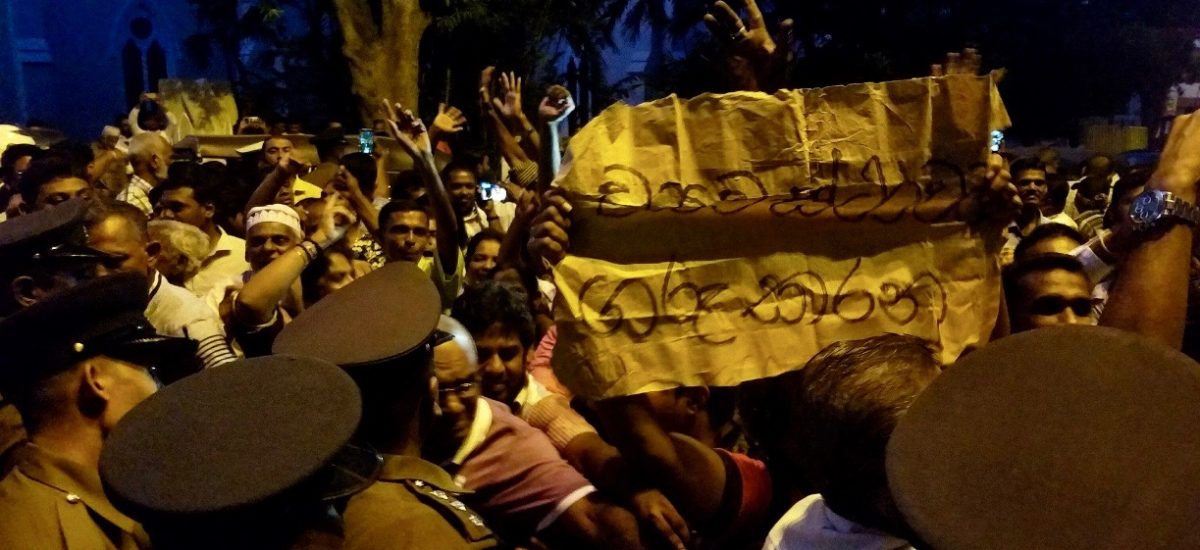President Maithripala Sirisena’s removal of Prime Minister Ranil Wickremesinghe and appointment of former President Mahinda Rajapaksa has set in motion a chain of events that, right up to the time of writing, have left Sri Lanka in a political deadlock. Many legal experts have explained that Sirisena’s actions are unconstitutional. Though a Gazette he issued on November 9th to dissolve Parliament and hold elections was stayed by the Supreme Court, the reconvening of Parliament last week brought about a series of incidents previously unseen in Sri Lankan Parliamentary proceedings.
Sessions on November 15th and 16th have erupted in violence, with attempts of physical assault being made on the Speaker and other members of the house, by members of Sirisena’s and Rajapaksa’s supporters in the Sri Lanka Freedom Party (SLFP) and the Sri Lanka Podujana Peramuna (SLPP).
President Sirisena has also staunchly refused to accept the passage of two no confidence motions against the unconstitutionally-appointed Rajapaksa, thus deepening the crisis.
In a Writ of Quo Warranto against Mahinda Rajapaksa and his purported Cabinet, the Court of Appeal issued an interim order that prevented them from functioning in their various posts. Within a week, the 7-bench of the Supreme Court unanimously ruled that the Proclamation of the President to dissolve Parliament was unconstitutional and illegal.
The swearing in of Ranil Wickremesinghe as Prime Minister on December 16th brought the coup to an end.
During this period, several citizen protests took place to reject the illegal acts and power grabs committed by elected leaders. These were organised by collectives and various rights groups – women’s groups, LGBTIQA activists, journalists, artists, families of the disappeared, university academics, and many others.
With contributions from researchers and students, Groundviews has compiled a timeline of events, recording developments from October 26th to December 16th 2018.
View it embedded below, or in fullscreen directly here.

